Education > QUESTIONS & ANSWERS > RVE Practice Test Questions and Answers Already Passed (All)
RVE Practice Test Questions and Answers Already Passed
Document Content and Description Below
RVE Practice Test Questions and Answers Already Passed Semantic ✔✔the study of meaning, the study of linguistic development by classifying and examining changes in meaning and form. Syntax ✔... ✔the study of the rules for the formation of grammatical sentences in a language, the study of the patterns of formation of sentences and phrases from words, In linguistics, the study of the rules that govern the ways in which words combine to form phrases, clauses, and sentences. Syntax is one of the major components of grammar, The arrangement of words in a sentence. Semiphonetic ✔✔writing that demonstrates some awareness that letters represent speech sounds Phonemes ✔✔the smallest unit of speech that distinguishes one word from another, t of tug and r of rug \Phoneme matching ✔✔the ability to identify words that begin with the same sound. Phoneme isolation ✔✔the ability to isolate a single sound from within a word. Phoneme blending ✔✔the ability to blend individual sounds into a word. Phoneme segmentation ✔✔the ability to break a word into individual sounds. Phoneme manipulation ✔✔the ability to modify, change, or move the individual sounds in a word. Phoneme segmentation ✔✔process of dividing a spoken word into the smallest units of sound within that word Phonemic awareness ✔✔the ability to consciously manipulate individual phonemes in a spoken language, ability to tap count or push a penny forward for every sound heard in a word Phonetic ✔✔representing the sounds of speech with a set of distinct symbols (letters) each denoting a single sound Paralanguage ✔✔refers to the non-verbal elements of communication used to modify meaning and convey emotion. Paralanguage may be expressed consciously or unconsciously, and it includes the pitch, volume, and, in some cases, intonation of speech. Sometimes the definition is restricted to vocally-produced sounds. The study is known as paralinguistics. The term 'paralanguage' should not be confused with kinesics, or the study of body language. While kinesics is non-linguistic, it is not necessarily related to vocal or written language: paralanguage is. Formal assessments (norm and criterion) ✔✔Formal assessments have data which support the conclusions made from the test. We usually refer to these types of tests as standardized measures. These tests have been tried before on students and have statistics which support the conclusion such as the student is reading below average for his age. The data is mathematically computed and summarized. Scores such as percentiles, stanines, or standard scores are mostly commonly given from this type of assessment. Informal assessments (reading inventories) ✔✔Informal assessments are not data driven but rather content and performance driven. For example, running records are informal assessments because they indicate how well a student is reading a specific book. Scores such as 10 correct out of 15, percent of words read correctly, and most rubric scores; are given from this type of assessment. A criterion-referenced test ✔✔a test that provides a basis for determining a candidate's level of knowledge and skills in relation to a well-defined domain of content. What all of these tests have in common is that they attempt to determine a candidate's level of performance in relation to a well-defined domain of content. norm-referenced tests ✔✔determine a candidate's level of the construct measured by a test in relation to a well-defined reference group of candidates, referred to as the norm group. Flexible grouping ✔✔allows students to see themselves in a variety of contexts and aids the teacher in "auditioning" students in different settings and with different kinds of work phonological component ✔✔involves the rules for combining sounds. Speakers of English, for example, know that an English word can end, but not begin, with an -ng sound. We are not aware of our knowledge of these rules, but our ability to understand and pronounce English words demonstrates that we do know a vast number of rules. semantic component ✔✔is made up of morphemes, the smallest units of meaning that may be combined with each other to make up words(for example, paper + s are the two morphemes that make up papers), and sentences (Brown, 1973). A dictionary contains the semantic component of a language, but also what words (and meanings) are important to the speakers of the language. syntactic component ✔✔consists of the rules that enable us to combine morphemes into sentences. As soon as a child uses two morphemes together, as in "more cracker," she is using a syntactic rule about how morphemes are combined to convey meaning. Phonics ✔✔reading instruction should be combined with intensive development of the oral language needed to understand the text. Before phonics instruction begins, students must have the phonemic awareness skills they need in order to perceive individual sounds in words. This is particularly important for sounds that are problematic because of the native language. Phonemic Awareness ✔✔children should have extensive experiences with fun and appealing songs, poems, chants, and read-alouds that will allow them to hear and reproduce the sound patterns of English. Fluency ✔✔Repeated readings of texts that contain unfamiliar vocabulary and sentence structures will not increase fluency. When working on developing fluency, be sure that students are reading texts that they are familiar with and can understand. [Show More]
Last updated: 2 years ago
Preview 1 out of 8 pages
.png)
Buy this document to get the full access instantly
Instant Download Access after purchase
Buy NowInstant download
We Accept:

Reviews( 0 )
$10.00
Can't find what you want? Try our AI powered Search
Document information
Connected school, study & course
About the document
Uploaded On
Sep 09, 2022
Number of pages
8
Written in
Additional information
This document has been written for:
Uploaded
Sep 09, 2022
Downloads
0
Views
121

.png)

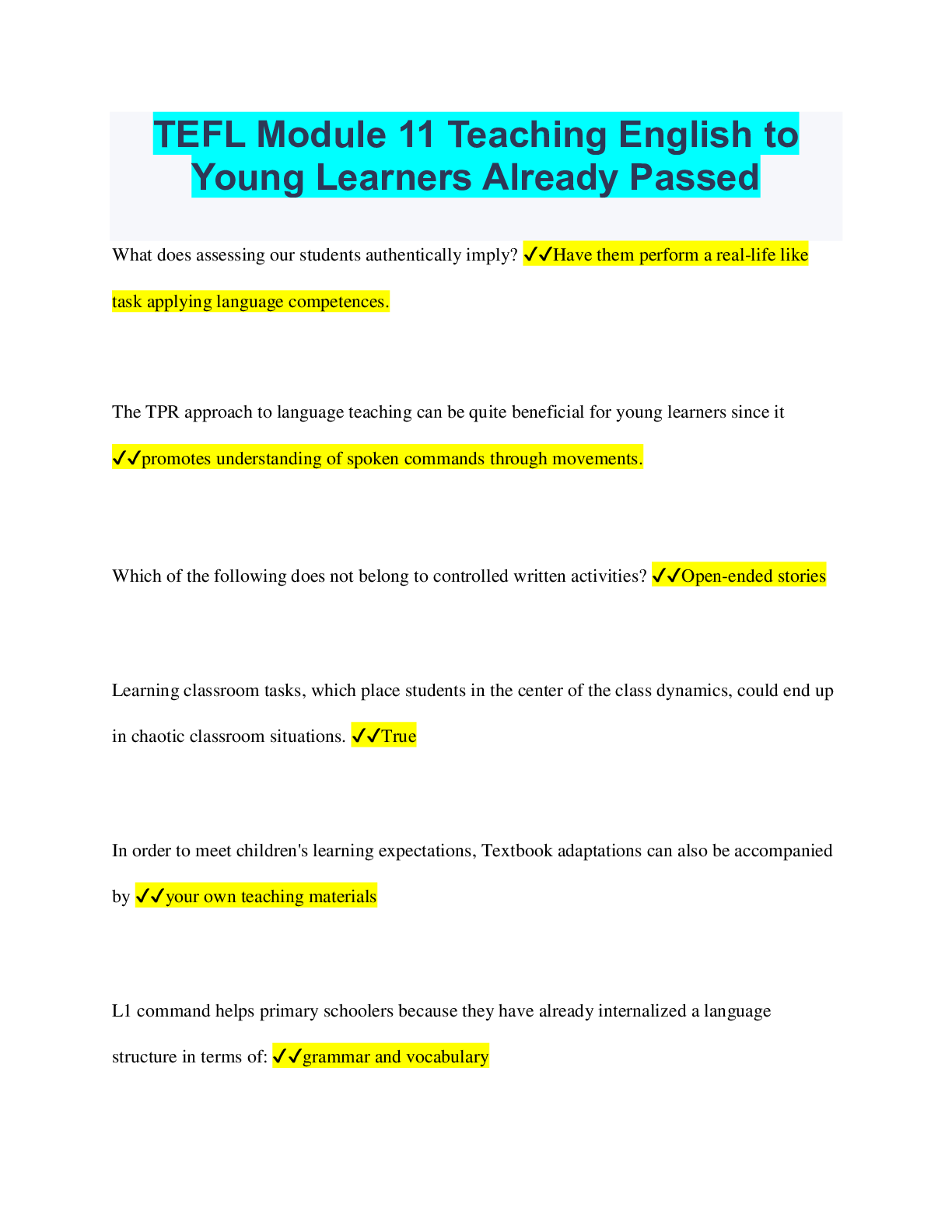
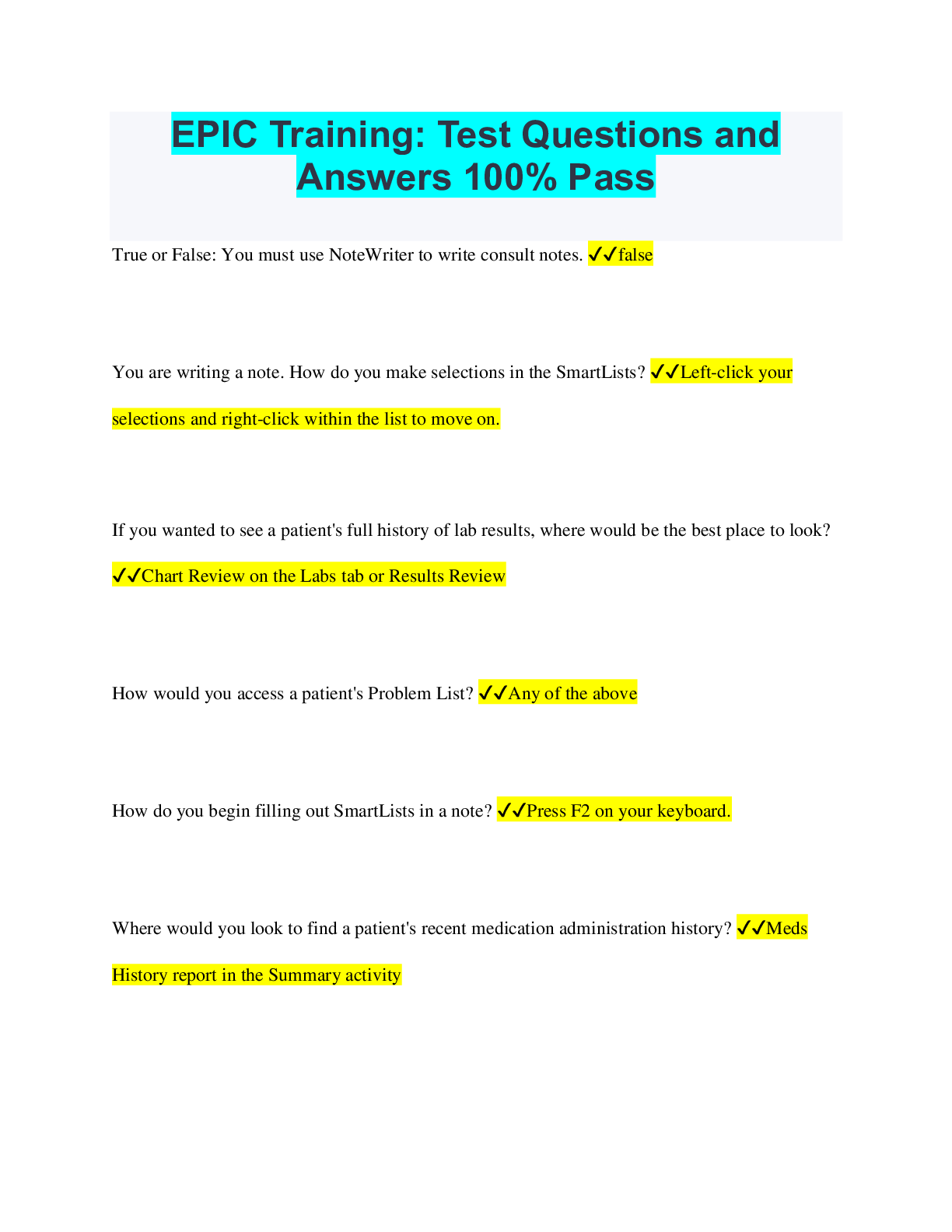
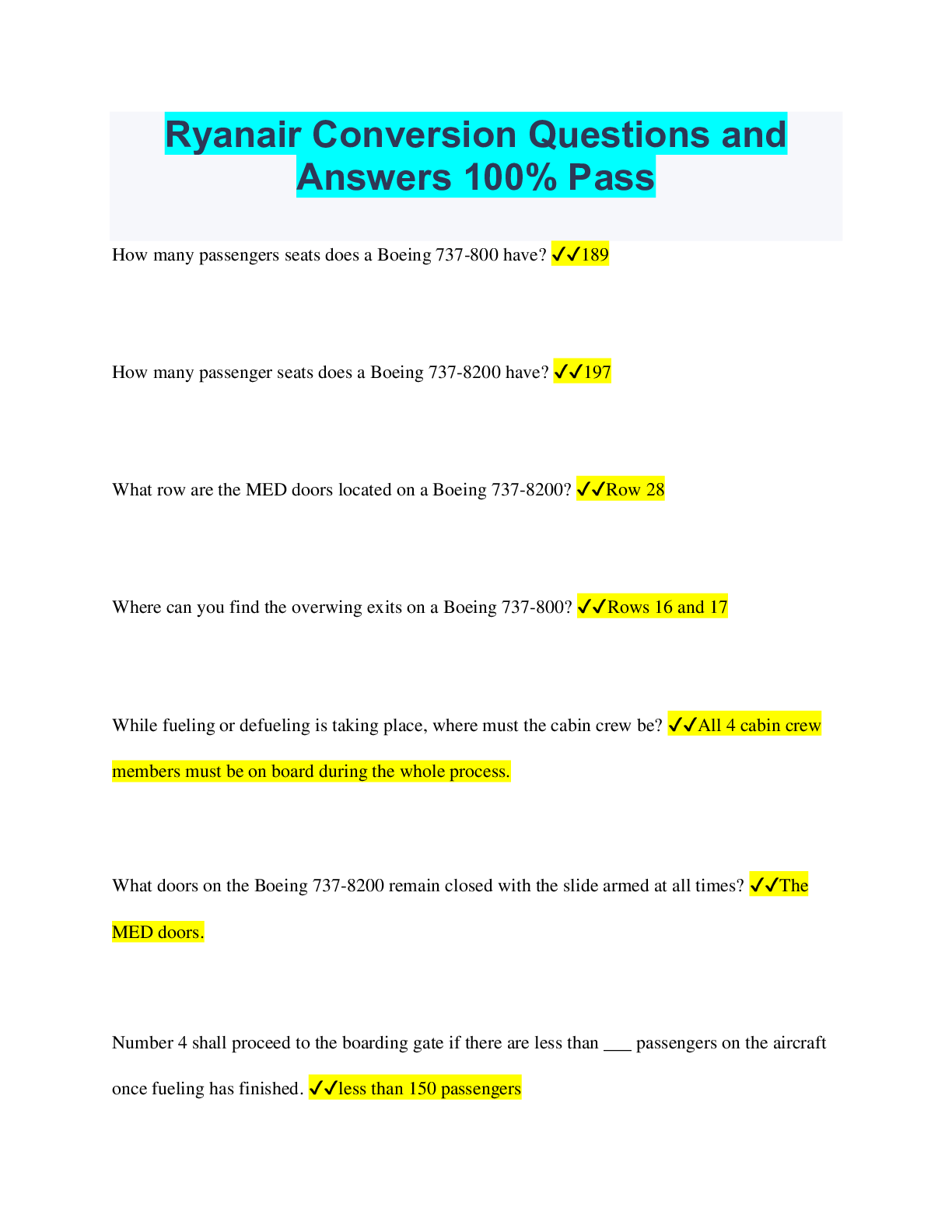
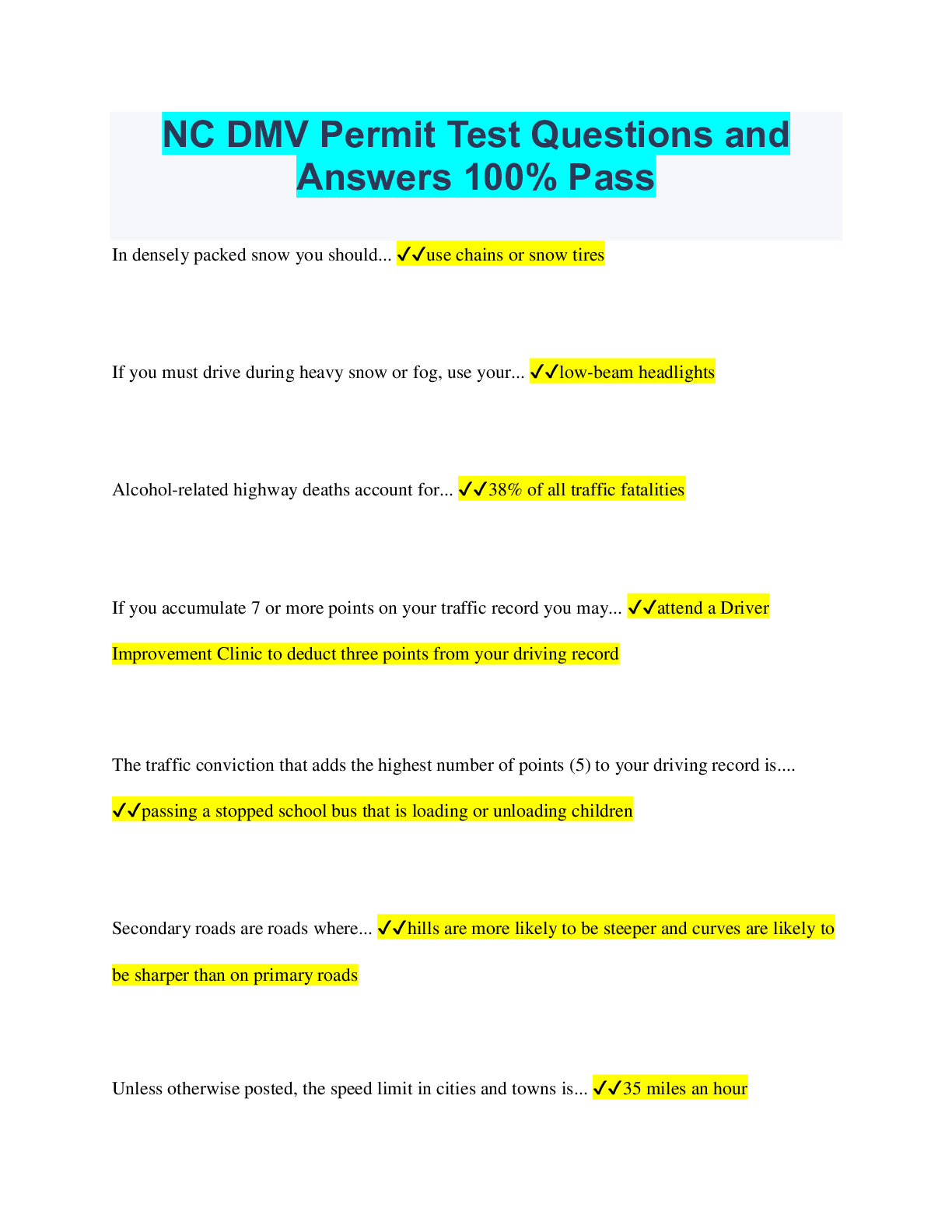
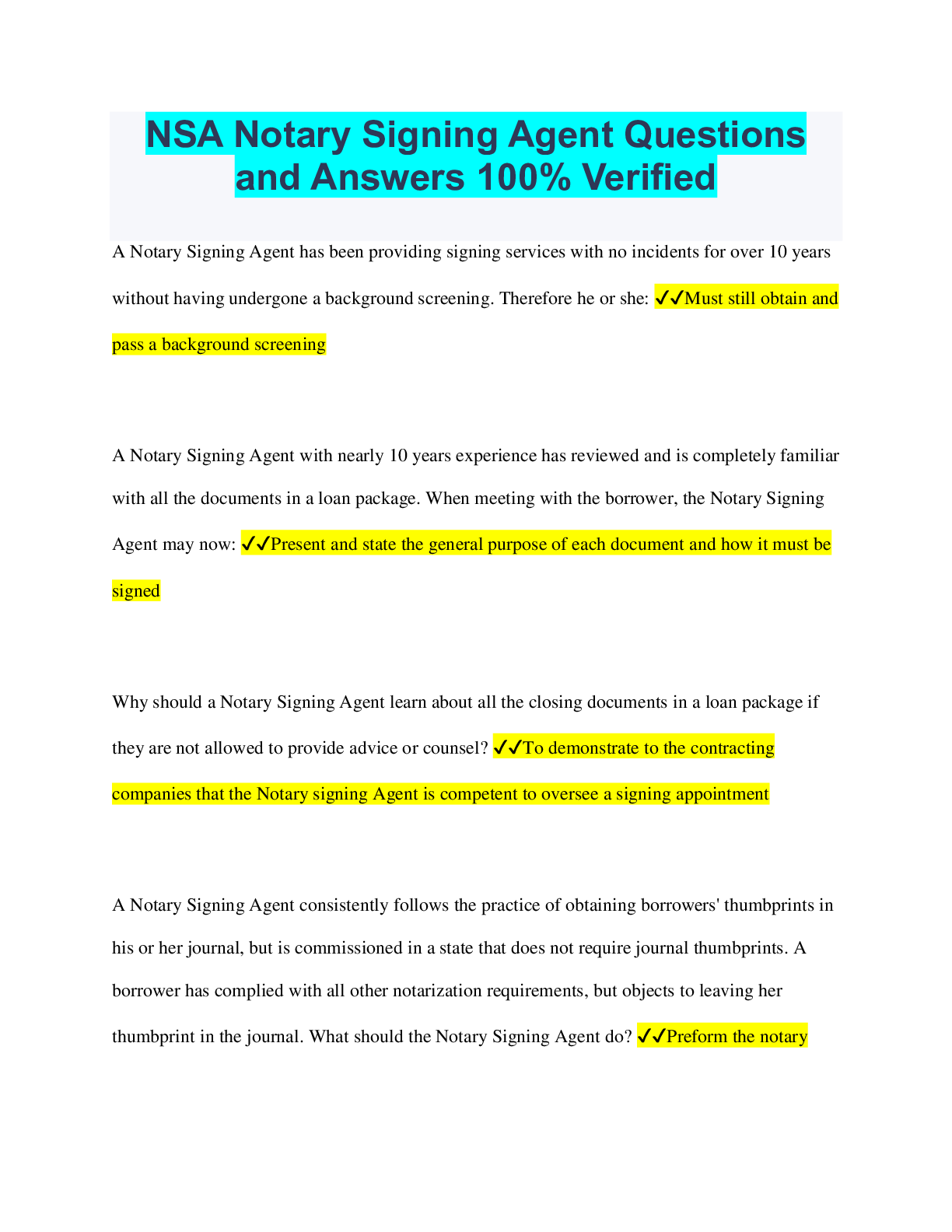
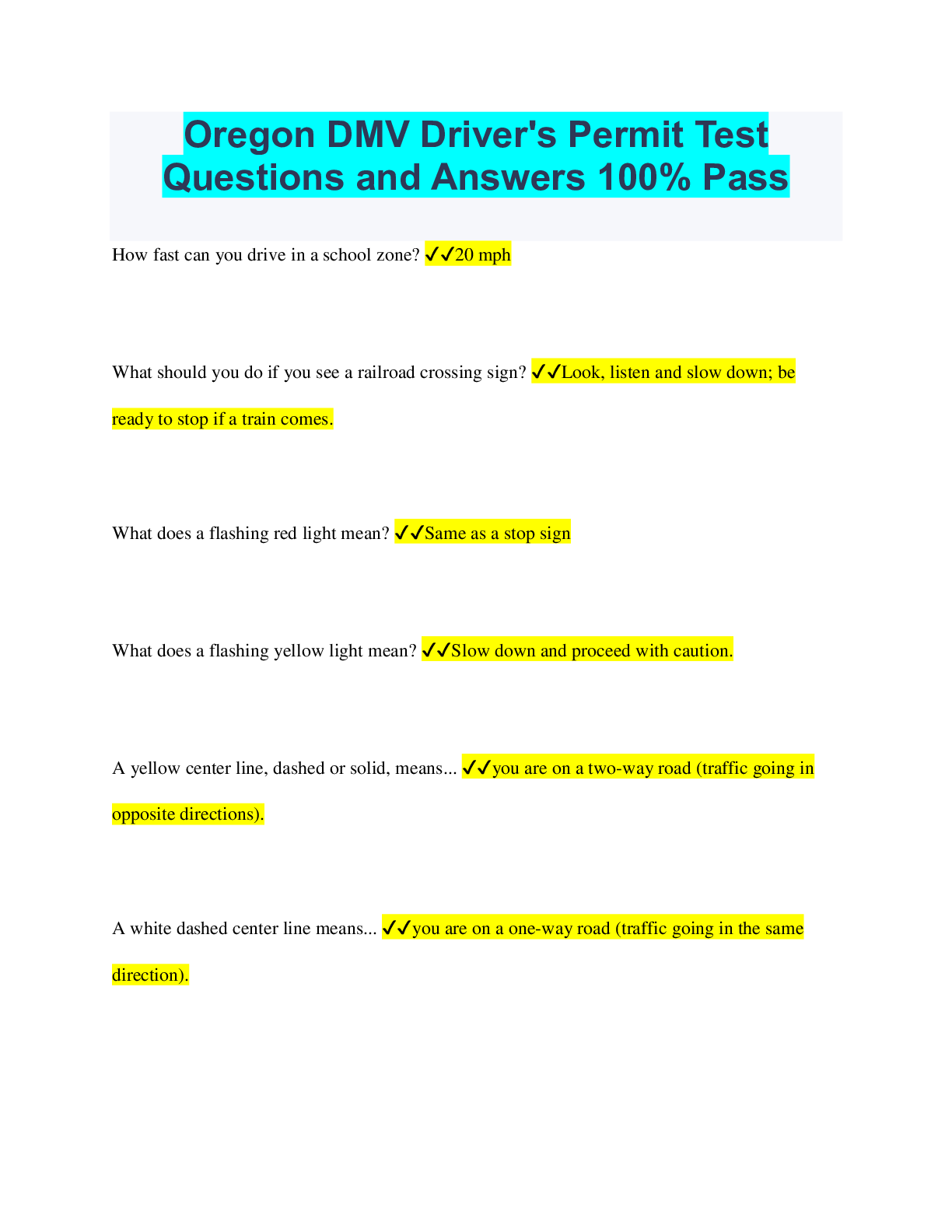
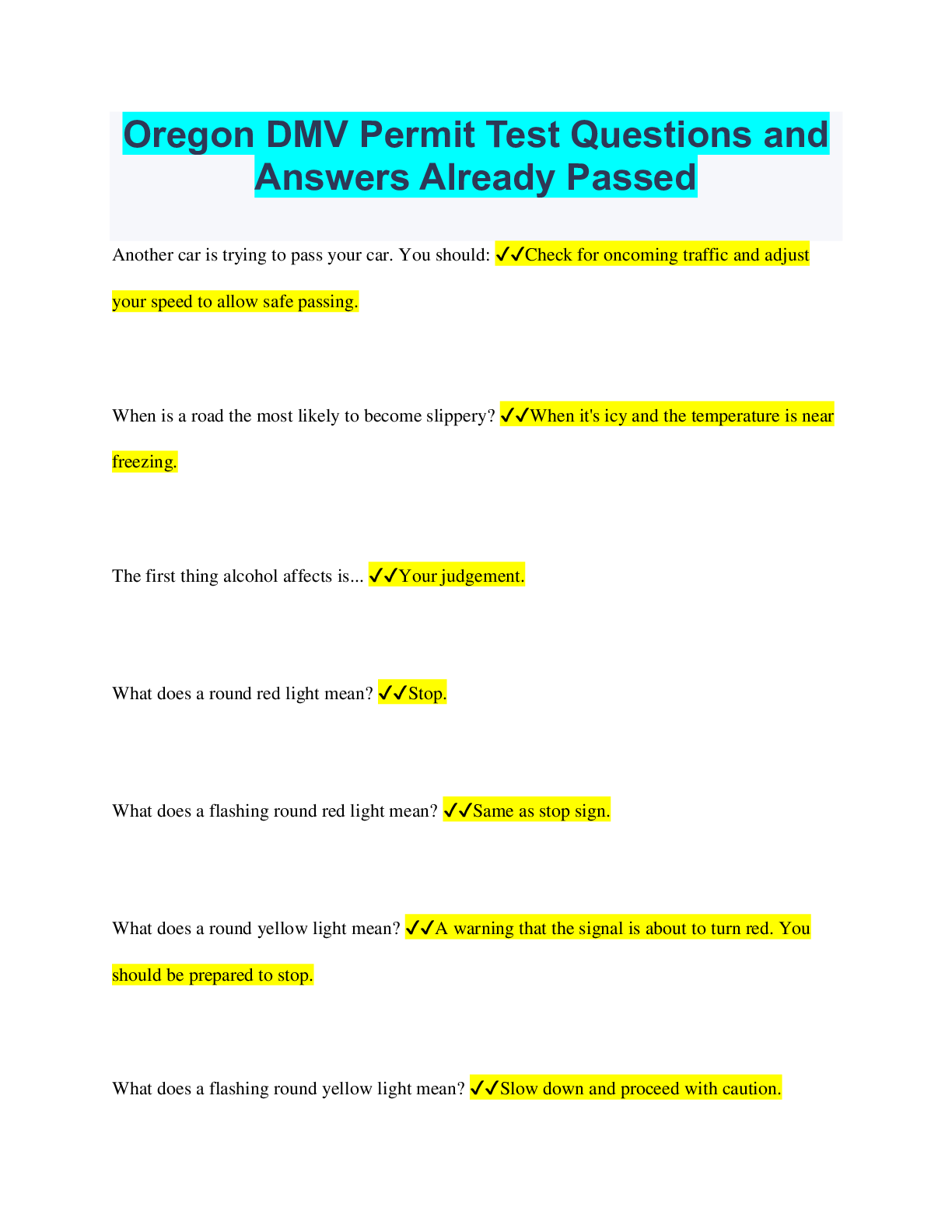
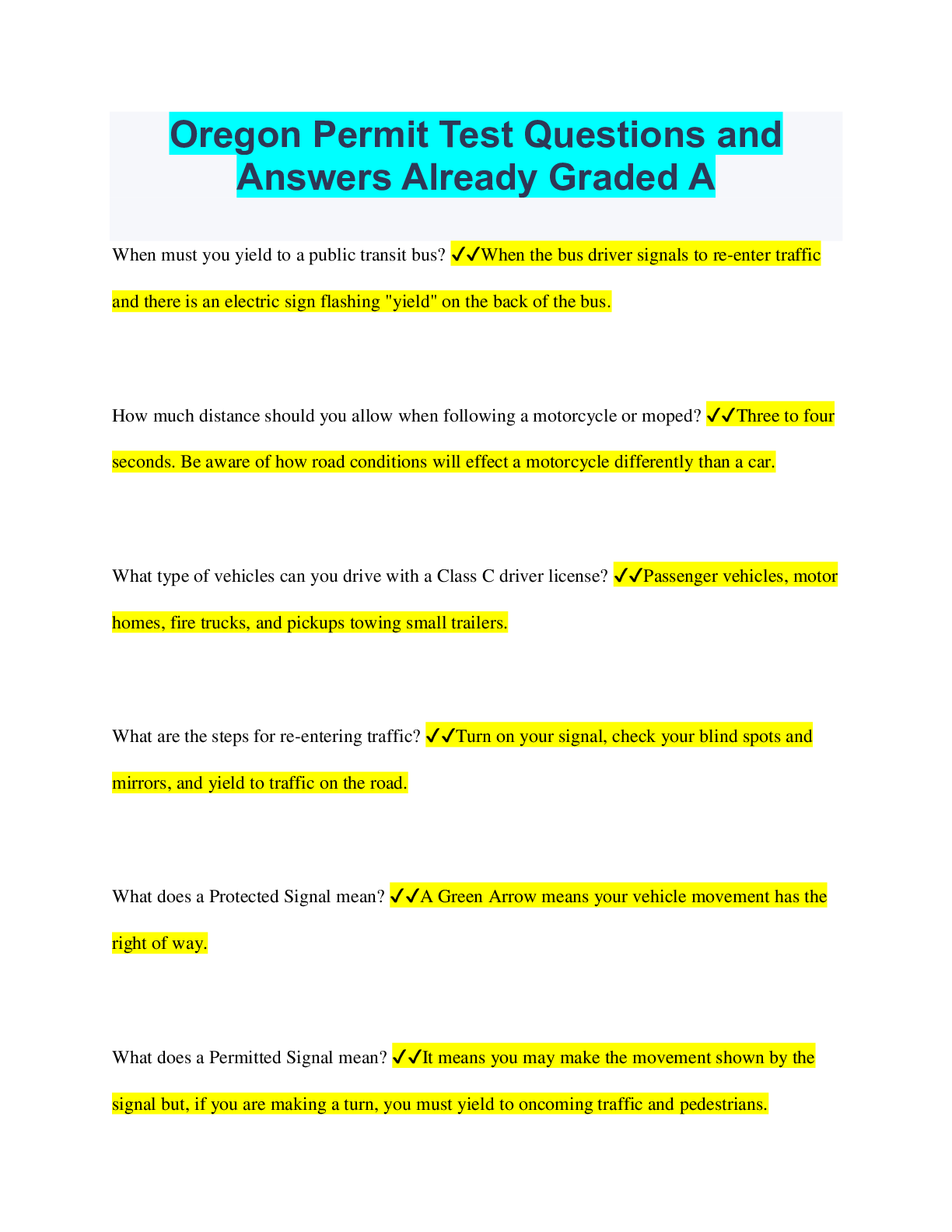
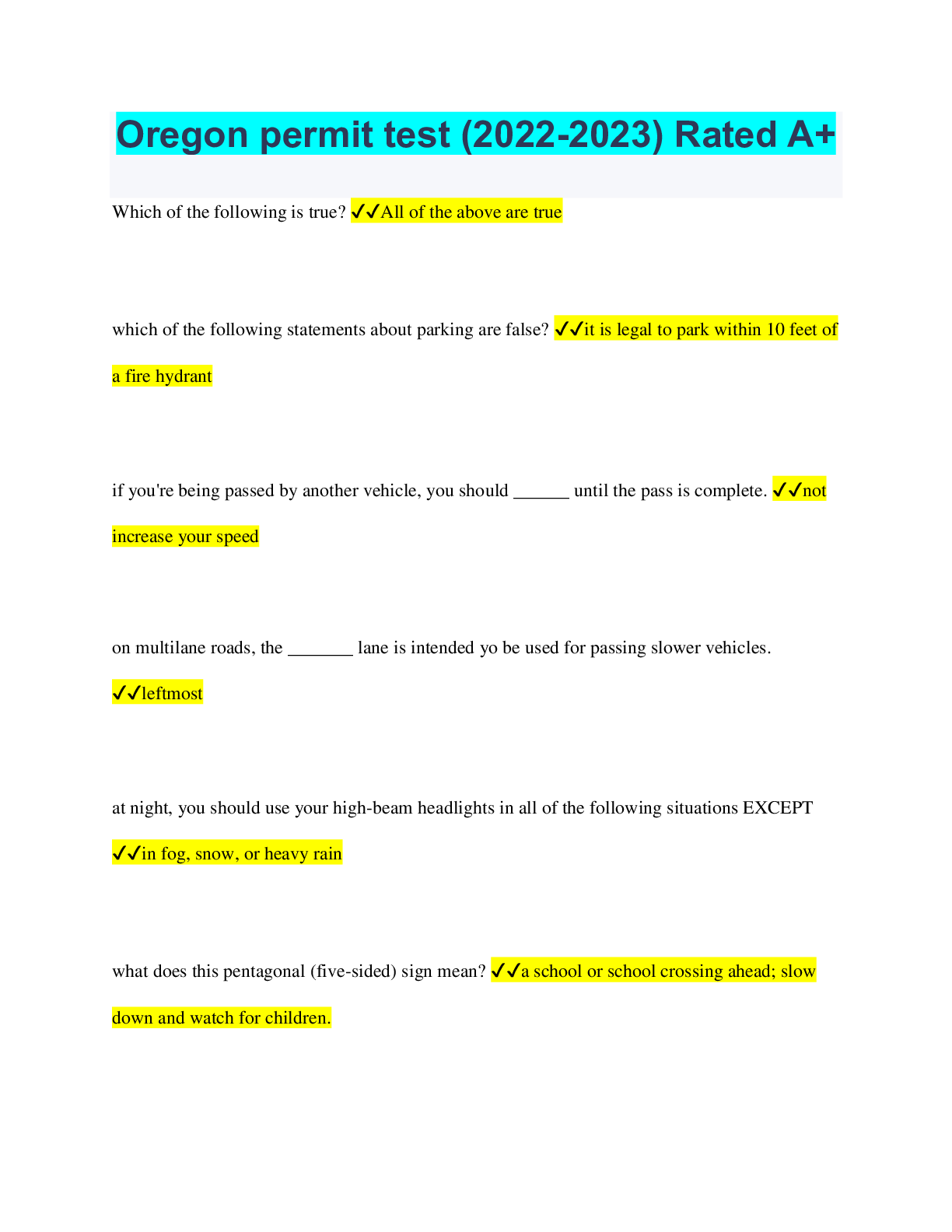
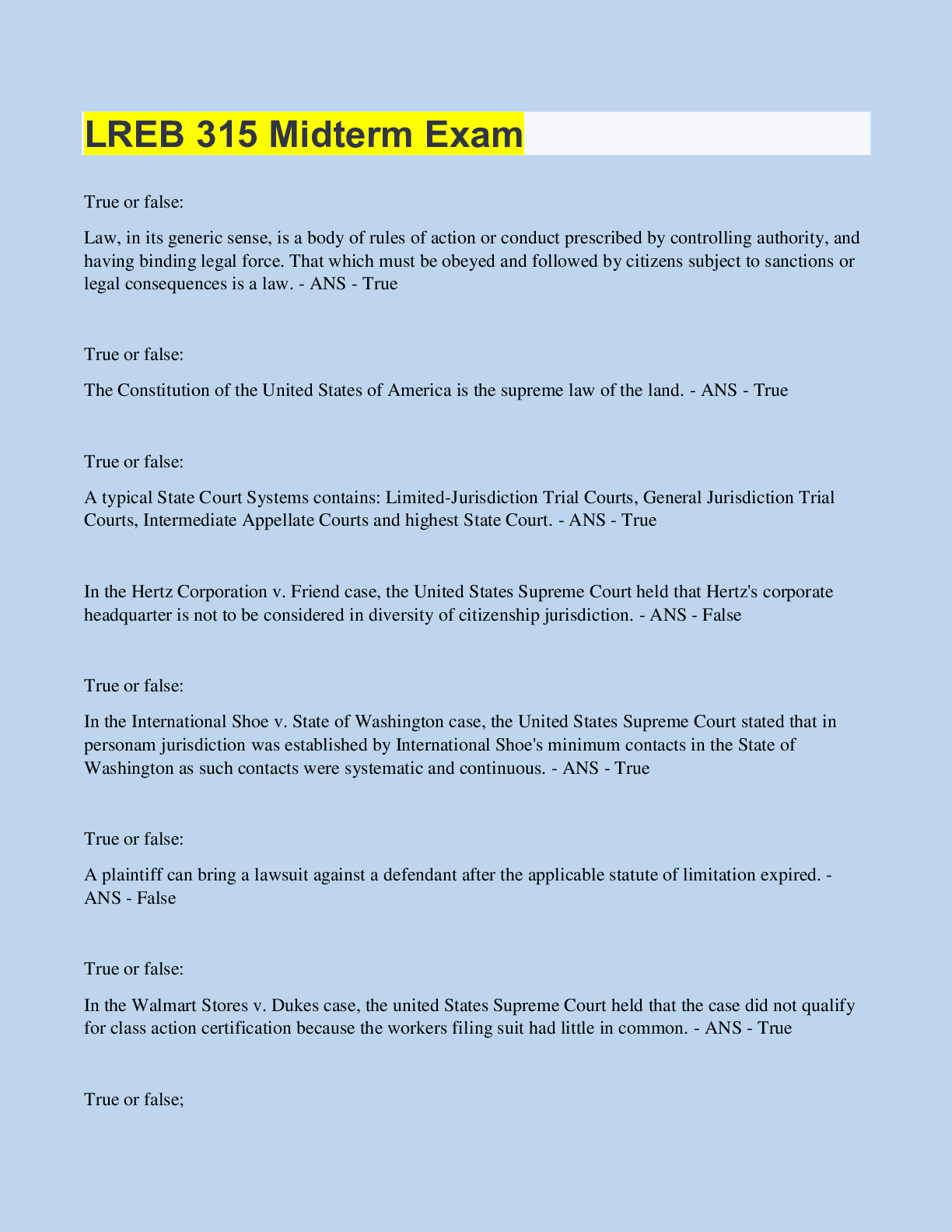

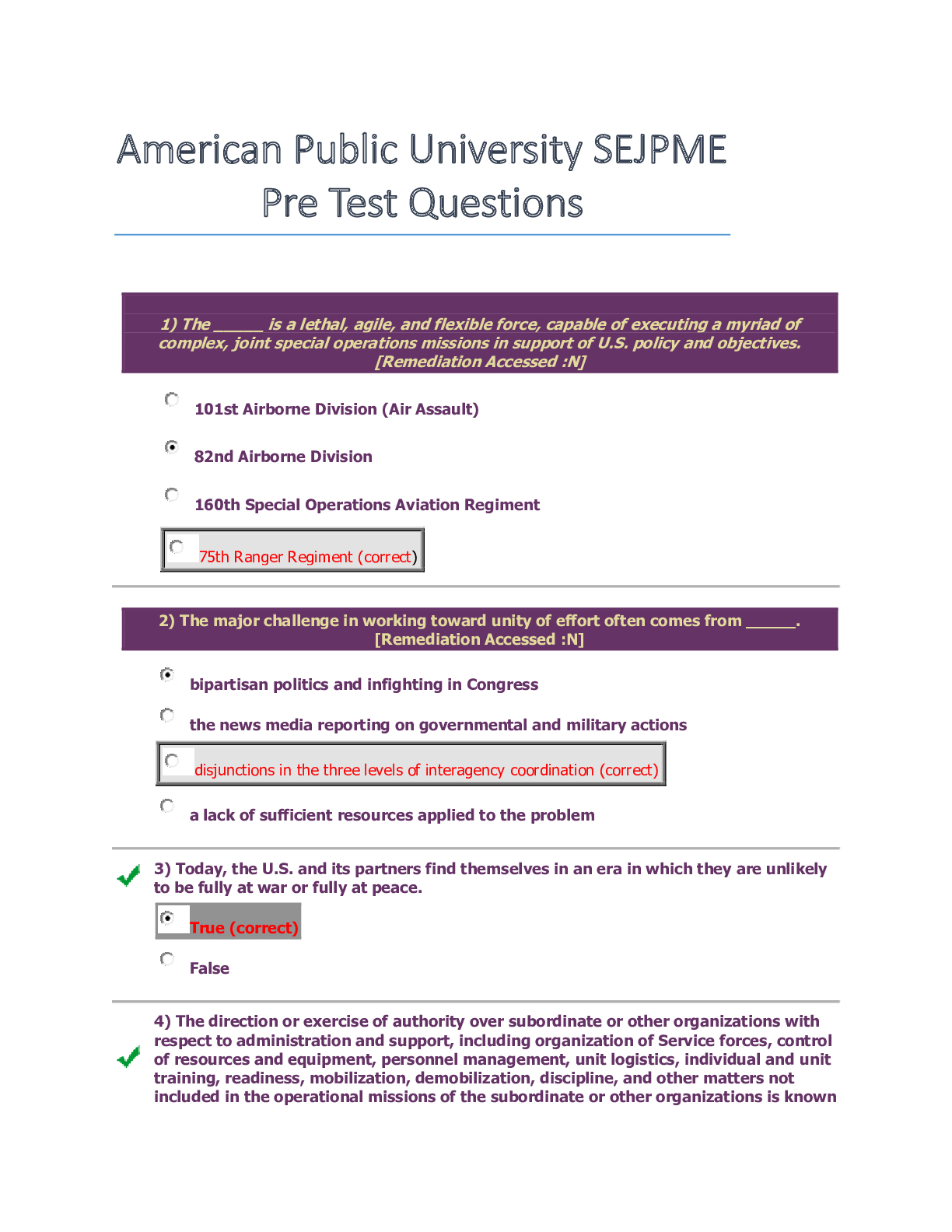
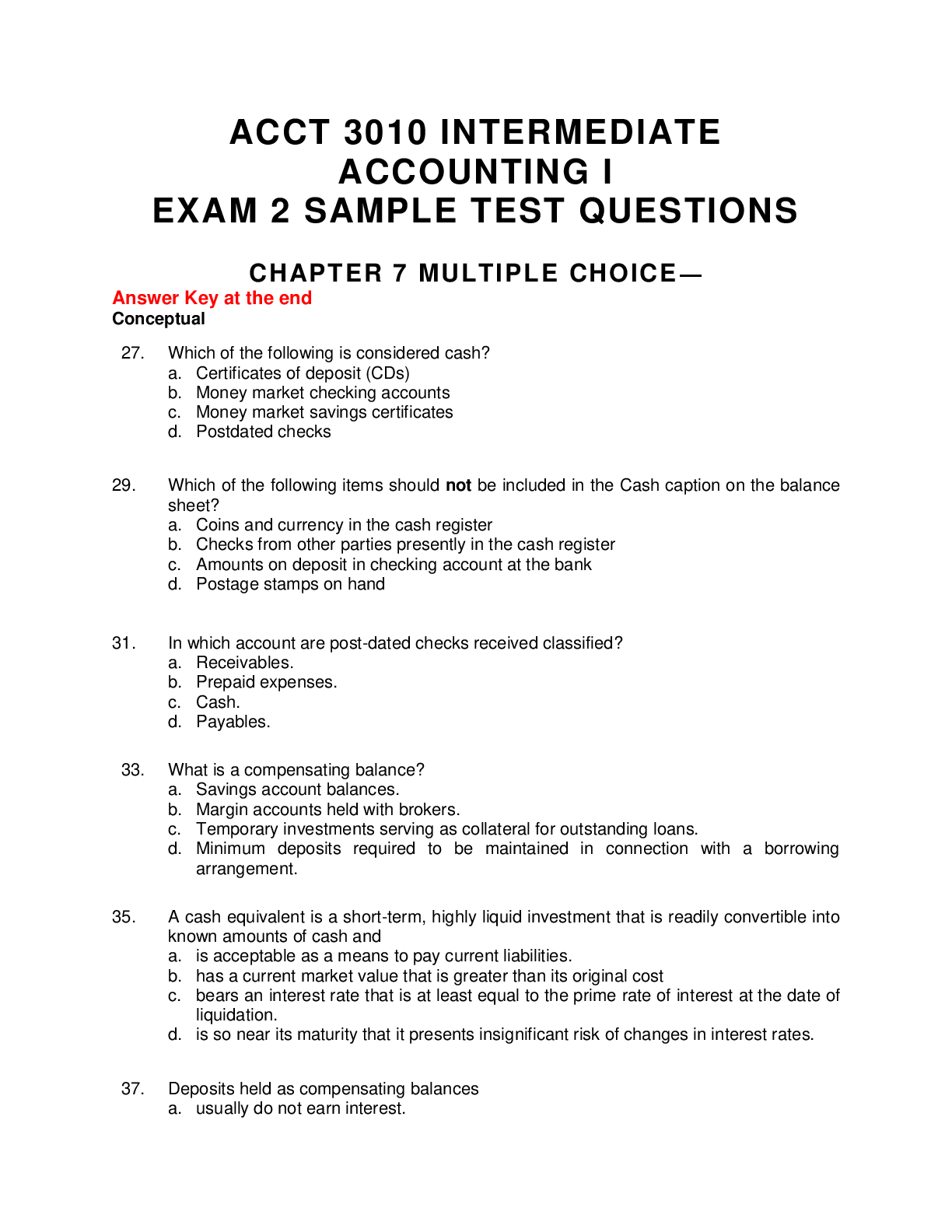
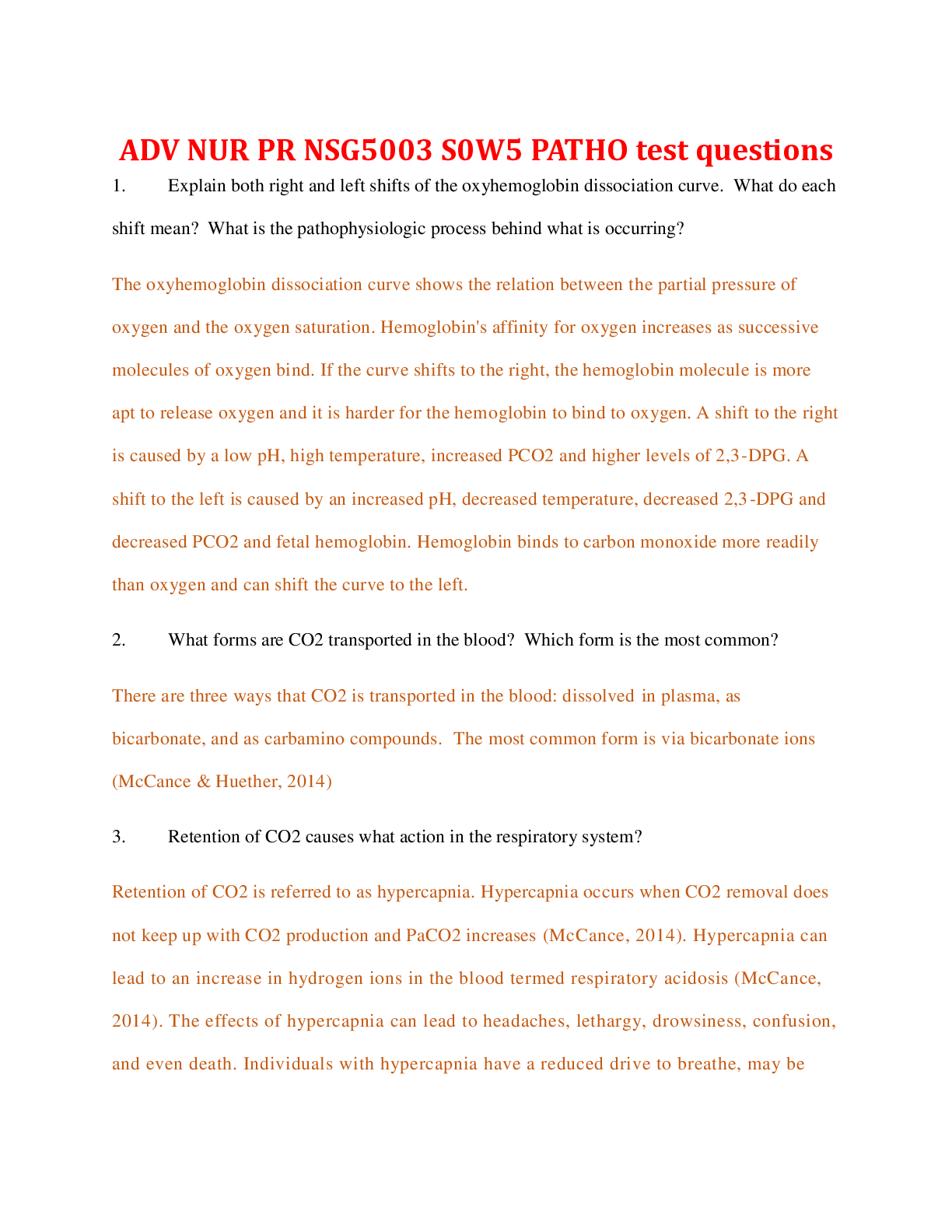
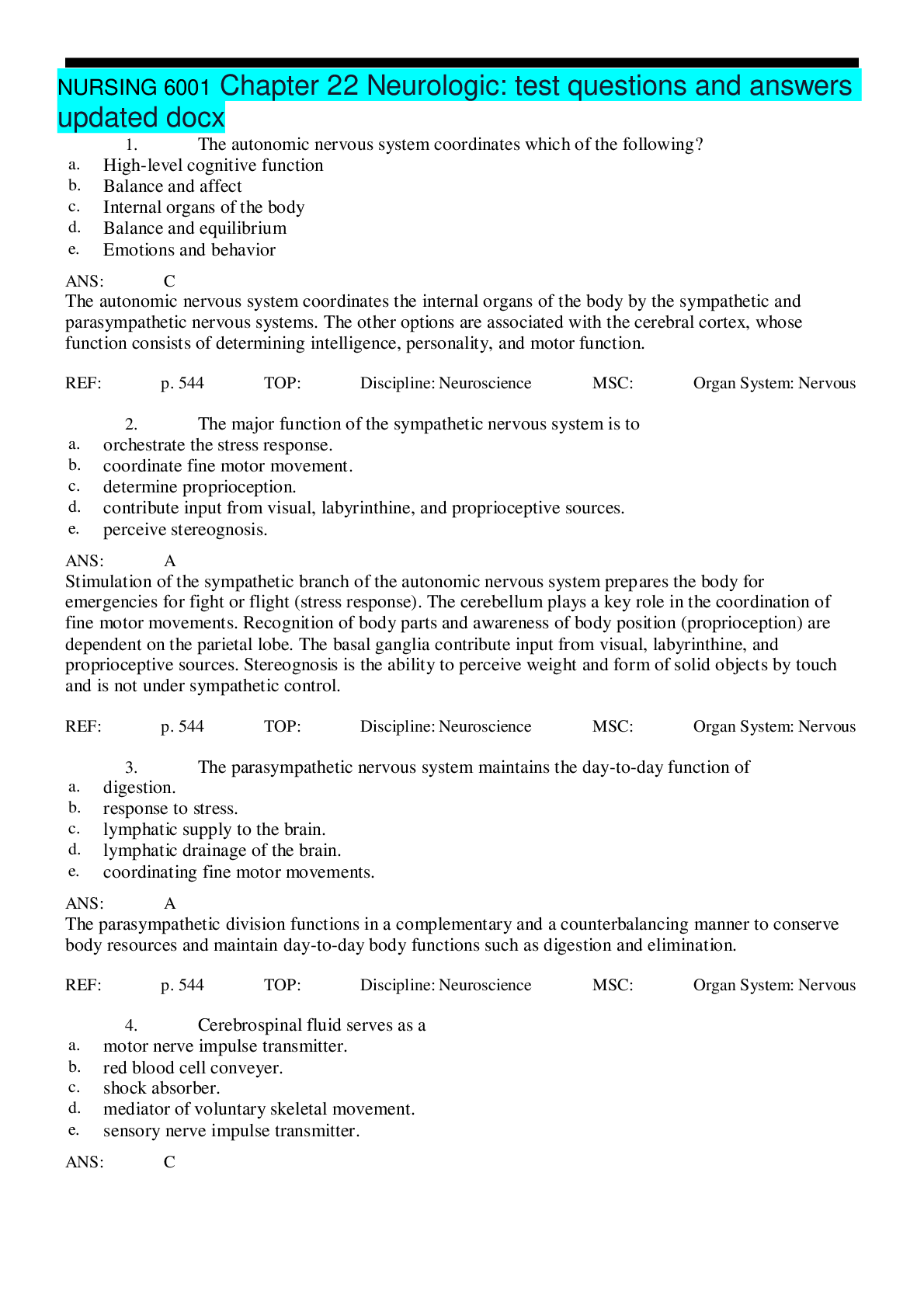
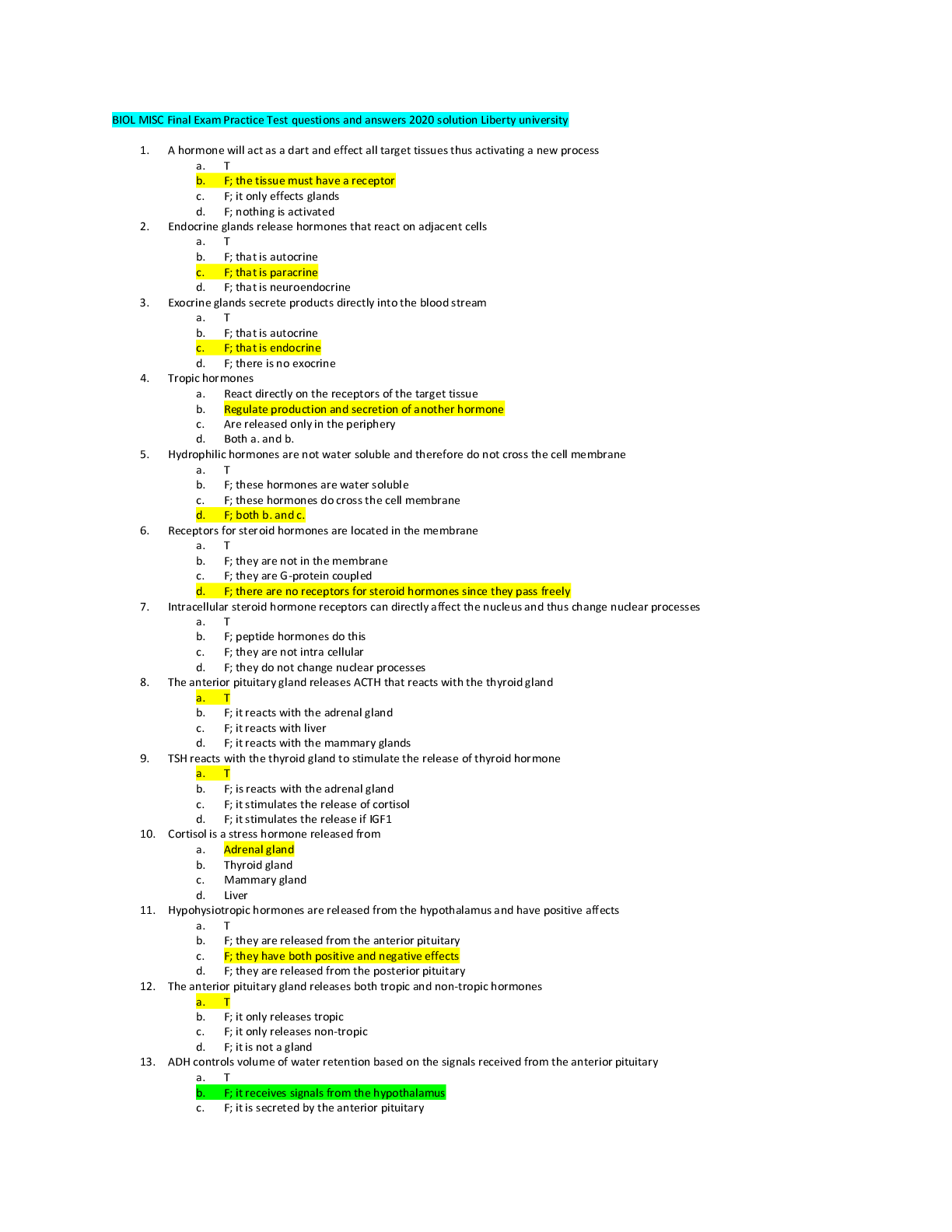
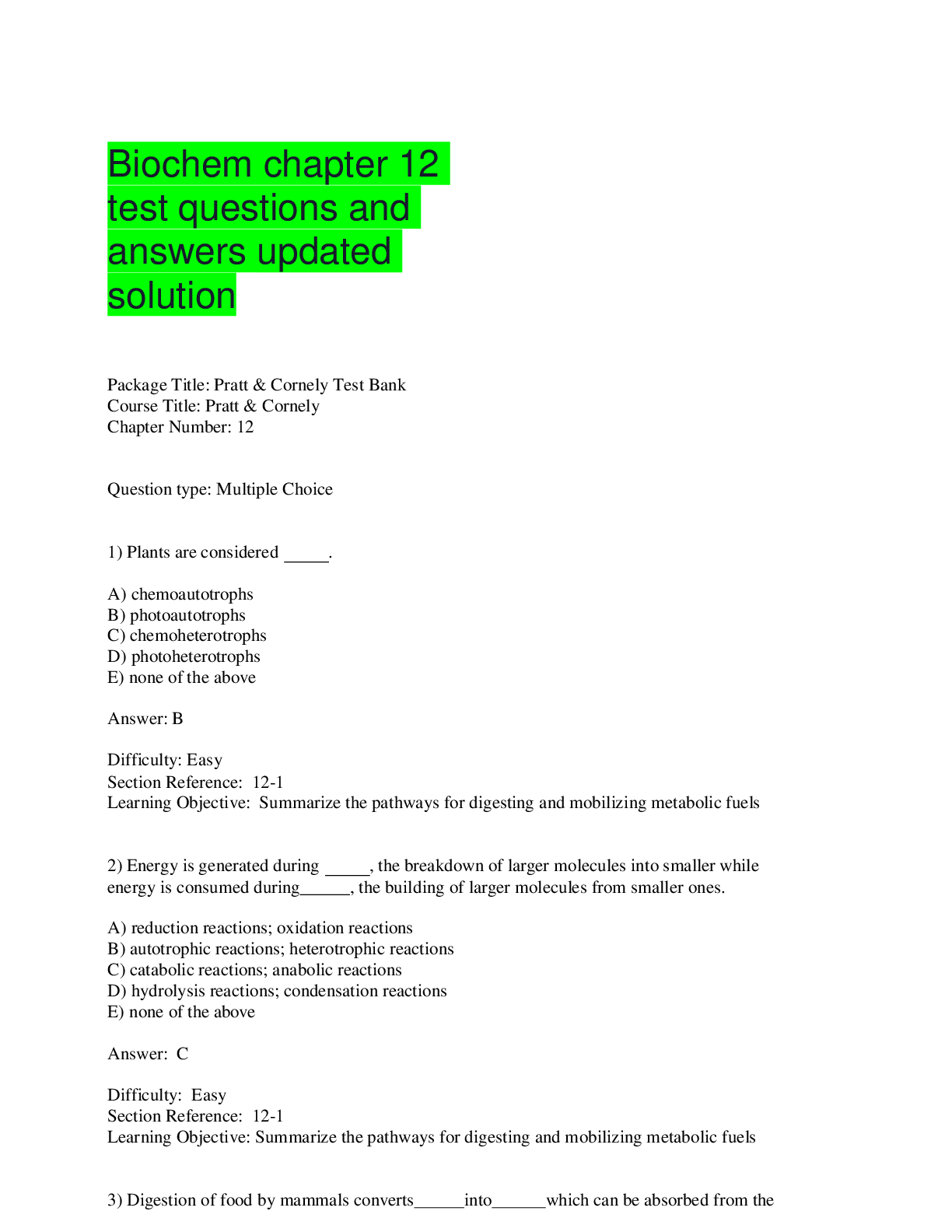


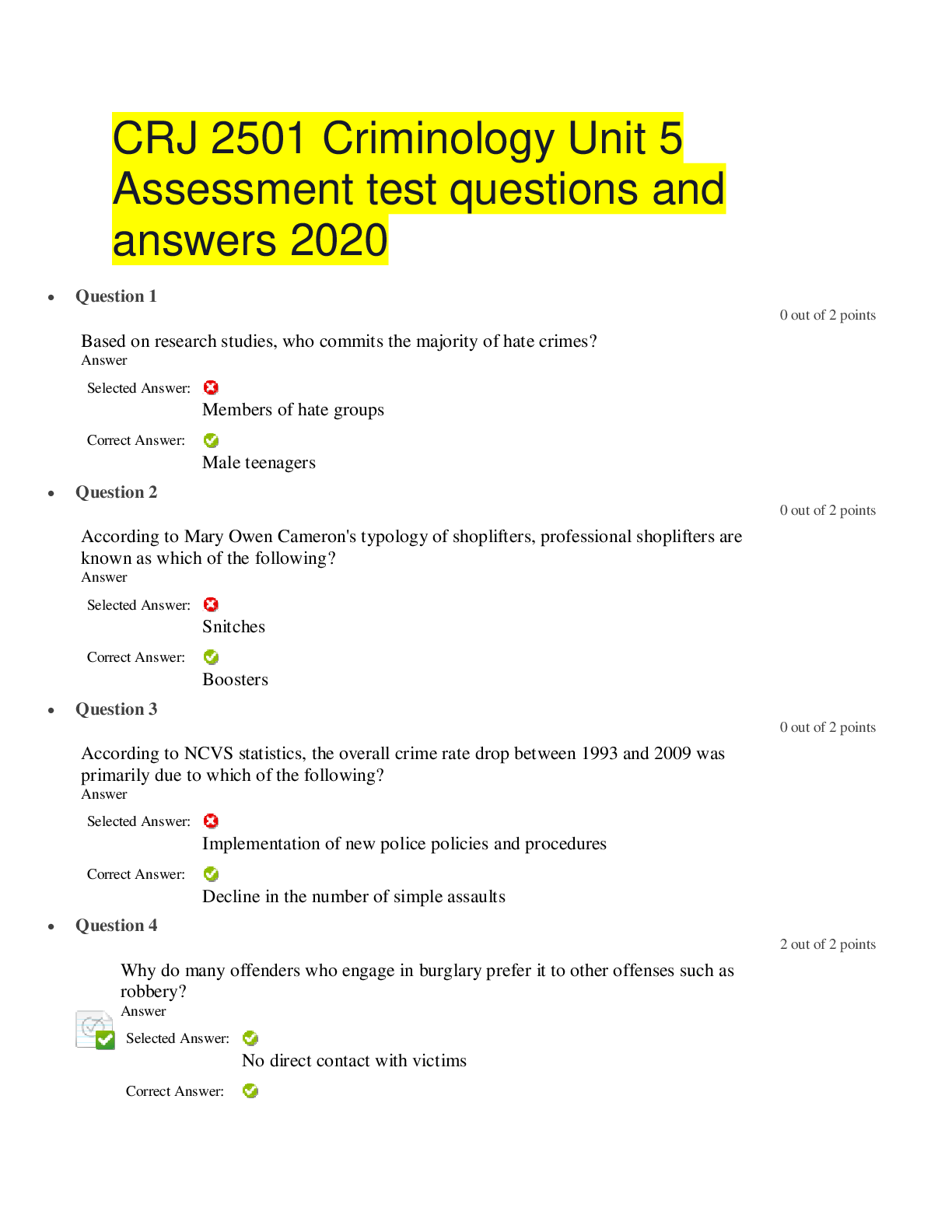
 Med Surg test Questions and Answers with Explanations, 100% Correct, Download to Score A.png)
 Med Surg test Questions and Answers with Explanations, 100% Correct, Download to Score A.png)

